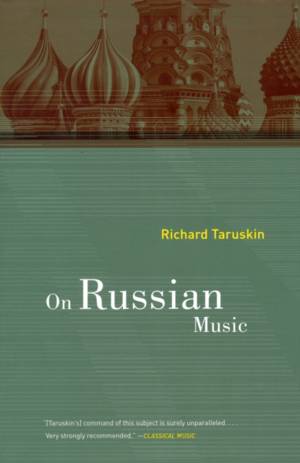
Je cadeautjes zeker op tijd in huis hebben voor de feestdagen? Kom langs in onze winkels en vind het perfecte geschenk!
- Afhalen na 1 uur in een winkel met voorraad
- Gratis thuislevering in België vanaf € 30
- Ruim aanbod met 7 miljoen producten
Je cadeautjes zeker op tijd in huis hebben voor de feestdagen? Kom langs in onze winkels en vind het perfecte geschenk!
- Afhalen na 1 uur in een winkel met voorraad
- Gratis thuislevering in België vanaf € 30
- Ruim aanbod met 7 miljoen producten
Zoeken
Omschrijving
Over the past four decades, Richard Taruskin's publications have redefined the field of Russian-music study. This volume gathers thirty-six essays on composers ranging from Bortnyansky in the eighteenth century to Tarnopolsky in the twenty-first, as well as all of the famous names in between. Some of these pieces, like the ones on Chaikovsky's alleged suicide and on the interpretation of Shostakovich's legacy, have won fame in their own right as decisive contributions to some of the most significant debates in contemporary musicology. An extensive introduction lays out the main issues and a justification of Taruskin's approach, seen both in the light of his intellectual development and in that of the changing intellectual environment, which has been particularly marked by the end of the cold war in Europe.
Specificaties
Betrokkenen
- Auteur(s):
- Uitgeverij:
Inhoud
- Aantal bladzijden:
- 416
- Taal:
- Engels
Eigenschappen
- Productcode (EAN):
- 9780520268067
- Verschijningsdatum:
- 30/09/2010
- Uitvoering:
- Paperback
- Formaat:
- Trade paperback (VS)
- Afmetingen:
- 152 mm x 226 mm
- Gewicht:
- 566 g

Alleen bij Standaard Boekhandel
+ 101 punten op je klantenkaart van Standaard Boekhandel
Beoordelingen
We publiceren alleen reviews die voldoen aan de voorwaarden voor reviews. Bekijk onze voorwaarden voor reviews.









